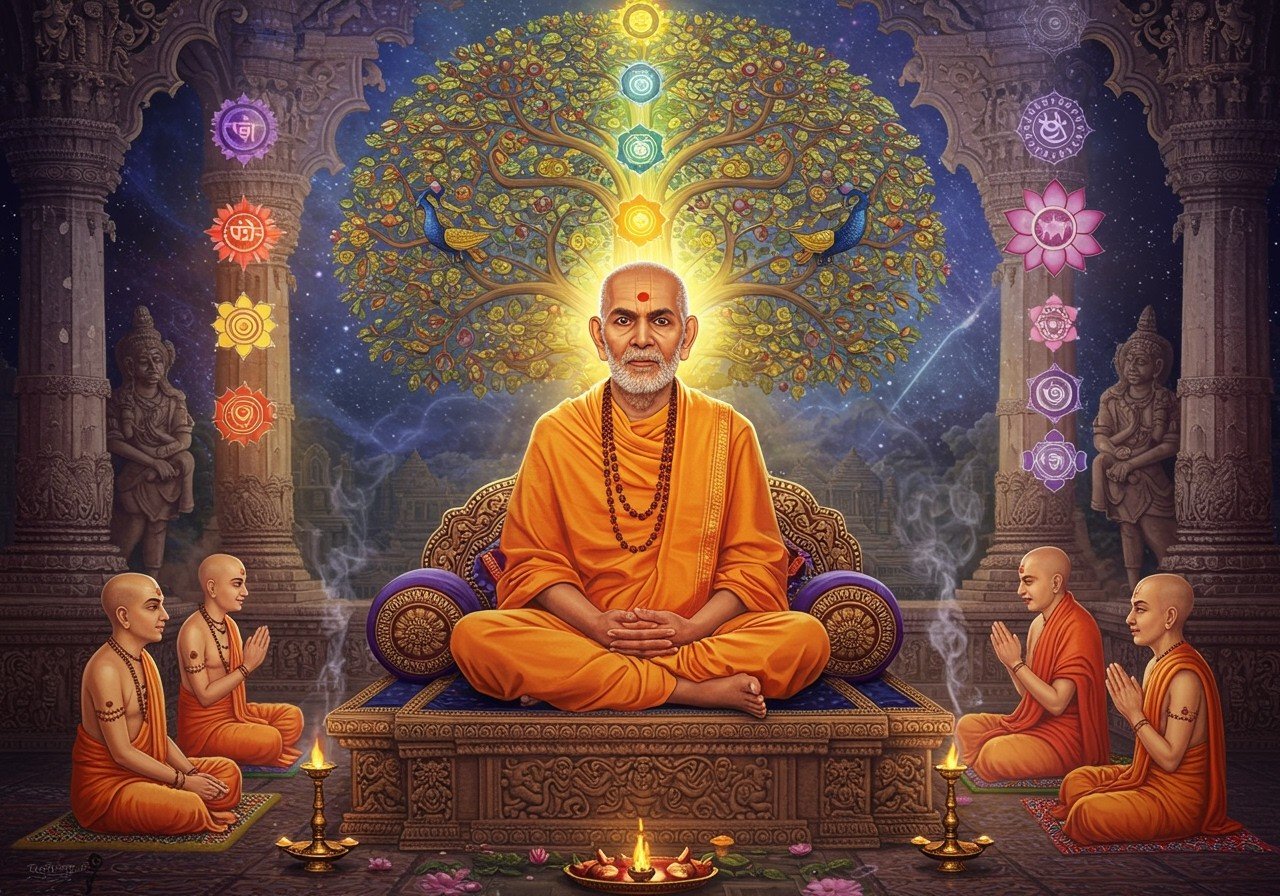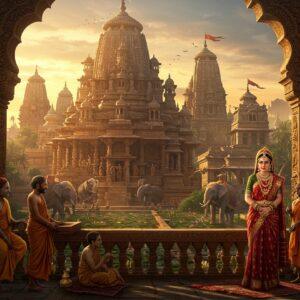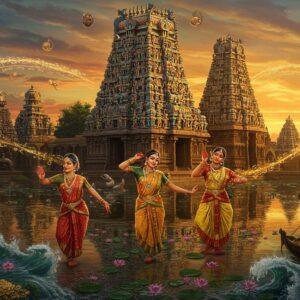
Chakradhar Swami, also known as Sarvadnya Shri Chakradhar Swami and Kunwar Haripaladeva, remains a significant figure in Indian spirituality. His teachings, centered around devotion to Krishna and a unique philosophical approach rooted in Bhakti, continue to resonate with seekers today. This guide delves into the life and teachings of this influential saint, offering a comprehensive overview for those interested in exploring his spiritual legacy.
Early Life and Historical Influence
Born in the 13th century, a period of dynamic change and spiritual upheaval in India, Chakradhar Swami’s life and teachings were deeply influenced by the socio-political landscape of his time. While details of his early life remain shrouded in some mystery, it is known he founded the Mahanubhava sect in 1267. This sect, with its focus on Krishnaism, emerged during a time of great religious and social ferment, offering a distinct path for spiritual seekers. His migration to Maharashtra further solidified his influence, establishing a strong foundation for the Mahanubhava sect in the region.
Exploring the Teachings of Chakradhar Swami
Chakradhar Swami’s philosophy centers on Bhakti, the path of devotion, emphasizing a profound connection with the divine through love and surrender. His teachings encourage a life of asceticism, renunciation, and deep spiritual practice.
Core Principles and Practices
At the heart of Chakradhar Swami’s teachings lie the “Fourfold Teachings”:
- Non-violence (Ahimsa): Practicing non-violence extended beyond physical actions to encompass thoughts and intentions, creating a holistic approach to peaceful living.
- Celibacy (Brahmacharya): This principle emphasized channeling energy towards spiritual growth and self-discipline, fostering detachment from worldly desires.
- Asceticism (Sannyasa): Embracing a life of simplicity and detachment from material possessions, allowing for a deeper focus on spiritual pursuits. Asceticism meant forsaking worldly comforts and attachments.
- Devotion (Bhakti): Cultivating deep love and devotion to God formed the cornerstone of Chakradhar Swami’s teachings, fostering a personal connection with the divine. Bhakti was not merely a ritual but a way of life.
He also stressed the importance of worshipping various aspects of God, including name, form, activity, deeds, place, scriptures (Shruti and Smriti), and the blessings of divine incarnations. This multifaceted approach fostered a deeper understanding of the divine.
The Five Krishnas (Pancha Krishna)
Chakradhar Swami’s unique concept of “Pancha Krishna” highlighted five forms of God as supreme: Dattatreya, Krishna, Chakrapani, Govinda Prabhu, and himself. This concept reflects a nuanced understanding of divine manifestations. Each form held specific significance, allowing devotees to connect with the divine in diverse ways.
The Path of Bhakti and Sacrifice
Chakradhar Swami taught that Bhakti could be practiced through the memorization of God’s deeds. This practice fostered continuous remembrance and deepened the devotee’s connection with the divine. Furthermore, he emphasized the importance of sacrifice, urging aspirants for salvation to relinquish worldly attachments, including family and possessions, fully dedicating their lives to God. This involved a radical shift in priorities, placing spiritual pursuits above all else.
For those seeking to deepen their understanding of Bhakti Yoga, you can explore our blog post on the subject: Bhakti Yoga: A Path to Divine Love and Devotion.
Ethical Conduct and Social Equality
Chakradhar Swami’s teachings promoted a strong ethical framework, forbidding alcohol, theft, gambling, hunting, and promiscuity. His famous saying, “Even if the head is cut off, the body should worship God,” epitomizes the unwavering devotion he expected from his followers. Remarkably, he rejected caste distinctions, recognizing only the difference between householders and recluses. This egalitarian view made his teachings accessible to people from all walks of life, fostering a sense of unity and spiritual equality. This resonates with the Hindu values discussed in our blog post about Sarvamangla: Sarvamangla: An Entrepreneurial Story Rooted in Hindu Values.
Poojn.in: Supporting Your Spiritual Journey
Poojn.in, India’s leading online store for cultural goods and services, offers a wide selection of products to support your spiritual practice. Discover authentic puja items, sacred texts, traditional prayer accessories, and more. Explore our collection of pure copper and brass items, natural cotton wicks, and pure ghee for your rituals. Visit Poojn.in today to discover how we can enhance your spiritual journey.
You may find these products particularly relevant:
Chakradhar Swami’s Enduring Legacy
Chakradhar Swami’s teachings continue to inspire seekers on their spiritual paths. His emphasis on devotion, ethical living, and social equality has left an enduring mark on Indian culture and spirituality. His biography, “Leela Charitra,” penned by his disciple Mahimbhatta, stands as a testament to his profound influence and serves as a valuable resource for those seeking to learn more about his life and teachings. Explore the wisdom of the Bhagavad Gita for daily living at: The Bhagavad Gita’s Impact on Modern Life. Embrace the power of mindfulness with: Mindfulness Meditation: This Is How You Cultivate Present Moment Awareness.
Frequently Asked Questions
What distinguished Chakradhar Swami’s teachings? Chakradhar Swami’s teachings emphasized direct devotion to God, ethical living, and inner purity over elaborate rituals. This direct and practical approach resonated with many, offering a clear path for spiritual growth.
How are Chakradhar Swami’s teachings relevant in the modern world? His emphasis on non-violence, compassion, and ethical conduct remains profoundly relevant in today’s complex world. These principles offer a framework for building a more just and harmonious society.
Where can I access resources to learn more about Chakradhar Swami? Numerous resources are available online and in libraries, including books on Indian philosophy, articles, and websites dedicated to his life and the Mahanubhava sect.


